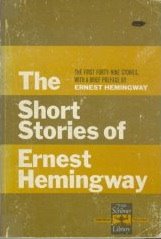
If you eat food, you should read this book. It's as important as any book about food is these days.
Though it may be about food, it's not a diet book. Though it does offer tips on healthy eating and living, it's not a book about that specifically.
The Omnivore's Dilemma is much more than that, it transcends to new heights about food, what we eat, and how we "think" about what we eat (i.e. why we cook meat). It's a fantastic journey, and Pollan, the author, is the ideal guide.
This is the first book I've read by Michael Pollan, it's safe to say it won't be my last. Pollan gets to the bottom of his subject. He immerses himself in all points of view, and ultimately lays out his conclusions with rational connections and telling insights.
Pollan dissects and breaks down four meals. A simple idea that provides a wealth of ground to cover. First, he dissects the industrial-agriculture complex, where corn is king, and eats a meal at McDonald's. Corn is in everything: most processed foods, it's fed to cows (not corn-eaters, grass-eaters), chickens (also not corn eaters by nature), farm-raised salmon, and most other animals strictly because of its plentitude. Corn is grown by American Farmers that are on the verge of bankruptcy. The crop is plentiful due to it's resilience and (i think, un)healthful symbiosis with humans. Corn is in a lot of stuff - notably soda - but it could be any crop. The harm is in the fact that corn is a monoculture, that it creates excess in so many areas of the environment, much unlike the way agriculture should be (which thrives as a polyculture, i.e. mini ecosystems). The reasons why it continues, though, are plentiful, but mainly because it provides a low-cost-high-producing way to feed the growing population of the earth, to which the traditional methods of farming can no longer support.
Pollan's other meals include a trip to his local Whole Foods for an organic meal (which resembles the non-organic supermarket equivalents more closely than you'd imagine), a trip and extended stay on a polyculture farm that provides the most ideal setting for growing and selling food, though it can only be done on a local scale, and a meal that he has hunted and foraged all on his own.
I hesitate to give away much more about the book because to do so would discount the wealth of information offered. There's just too much to summarize, too many points for everything, good and bad. I will say, though, that I've found a new appreciation for what I am eating, and how I think about what I am eating. Pollan's last meal, the one he hunted and foraged himself, gave me personal satisfaction, insight, and appreciation of hunting, gathering, cultivating, and foraging as well. Though hunting is that barbaric, uncivilized part of society, it's still there, it's as much a part of the cycle of life, and the food chain, as anything (including eating a burger in a fast food restaurant). The founder of PETA was a meat-eater (a little known fact that is not, guess why, highly publicized), and one of the leading animal rights activists, Peter Singer, tells the author he'd rather an animal be hunted humanely (meaning responsibly) than any animal killed the way they are when they are processed for the supermarket.
Pollan notes that we as an American culture lack a unified culture of food. It's nice to have the diversity, but most of us eat a burger without even a second thought as to where the whole meal came from. Most of it came from a cornfield in Iowa. The meat from a beef processing plant from a cow that didn't live exactly the way we'd like to think of.
My thoughts on this book are choppy and jumbled, I know. It's partially out of excitement to share the information while at the same time hold back so that there's something to enjoy. So read it, please, and start thinking about what you eat and eat responsibly. Plus, I'm getting hungry, and I need to figure out what I'm going to eat for dinner.
I've got my own ominivorous dilemma to tend to.
 I started reading this book the day Kurt Vonnegut passed away. I didn't know yet, of course, and it's probably too soon to write that so abrasively, but I don't think he would mind. I was reading so I would be up to speed when I would see him live in a couple of months at the Dorothy Chandler Pavilion. I was reading his latest, his last finished book, because I was interested in what he had to say.
I started reading this book the day Kurt Vonnegut passed away. I didn't know yet, of course, and it's probably too soon to write that so abrasively, but I don't think he would mind. I was reading so I would be up to speed when I would see him live in a couple of months at the Dorothy Chandler Pavilion. I was reading his latest, his last finished book, because I was interested in what he had to say.

